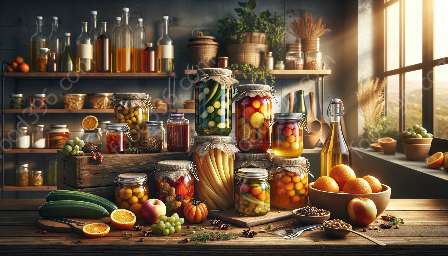Blanching is a versatile food preparation technique that plays a crucial role in canning and food preservation. This process involves briefly immersing food items in boiling water, followed by rapid cooling to halt the cooking process. Its compatibility with canning and its benefits for food preparation make blanching an essential skill for anyone who is serious about preserving and prepping food.
Understanding Blanching
What is Blanching?
Blanching is a cooking process in which food items are briefly submerged in boiling water, then immediately cooled in ice water or cold running water. The purpose of blanching is to partially cook the food, while also retaining its natural color, flavor, and nutritional value. This technique is commonly used to prepare vegetables, but it can also be applied to fruits, nuts, and even seafood.
How Does Blanching Work?
When food is immersed in boiling water, the heat causes the enzymes to become inactivated, which helps slow down the loss of flavor, color, and nutrients. Rapidly cooling the food after blanching stops the cooking process and helps maintain its texture and nutritional content.
Blanching in Canning
Blanching for Canning
Blanching is an essential step in the canning process as it helps preserve the quality of the food being processed. By blanching fruits and vegetables before canning, you can preserve their texture, flavor, and nutritional value for an extended period. This pre-cooking process also removes any surface dirt and microbes from the produce, contributing to the safety and longevity of canned goods.
Blanching Time for Canning
The blanching time for canning varies depending on the type and size of the food item. It is important to follow specific blanching time recommendations for different foods to ensure that they are adequately prepared for canning. Under-blanching or over-blanching can result in a loss of quality and nutritional value in the canned products.
Benefits of Blanching
Prolongs Shelf Life
Blanching deactivates enzymes that cause food to spoil or degrade over time, making it an effective method for extending the shelf life of fruits and vegetables. By blanching before canning, you can enjoy canned produce that retains its quality and flavor for an extended period.
Retains Quality and Color
Blanching helps preserve the vibrant colors and textures of fruits and vegetables, making them visually appealing in canned goods. This technique also helps retain the natural flavors and nutrients, ensuring that the canned produce remains appetizing and nutritious.
Facilitates Prepping and Freezing
Blanching is not only beneficial for canning but also for prepping produce for freezing. By blanching vegetables before freezing, you can maintain their quality and prevent the growth of bacteria, ensuring that they stay fresh and flavorful when thawed and cooked.
Conclusion
Blanching is a key technique for canning and food preparation, offering a range of benefits for preserving and prepping food. Whether you're looking to extend the shelf life of your produce, retain their quality and color, or prepare them for freezing, blanching plays a crucial role in ensuring that your canned and prepped foods are of the highest standard.

